Overview
Publications
Recruitment
Intranet
CIFRI Corners'
The 21-day Winter School on Ecosystem Health Monitoring and Fisheries Management in Inland Open Waters, held from February 20 to March 12, 2025, at ICAR-CIFRI, Barrackpore, was a comprehensive training program that brought together experts and participants from various academic and research backgrounds. The program was inaugurated on February 20, 2025, with a welcome address by Dr. B. K. Das, Director of the Institute and Course Director of the winter school.
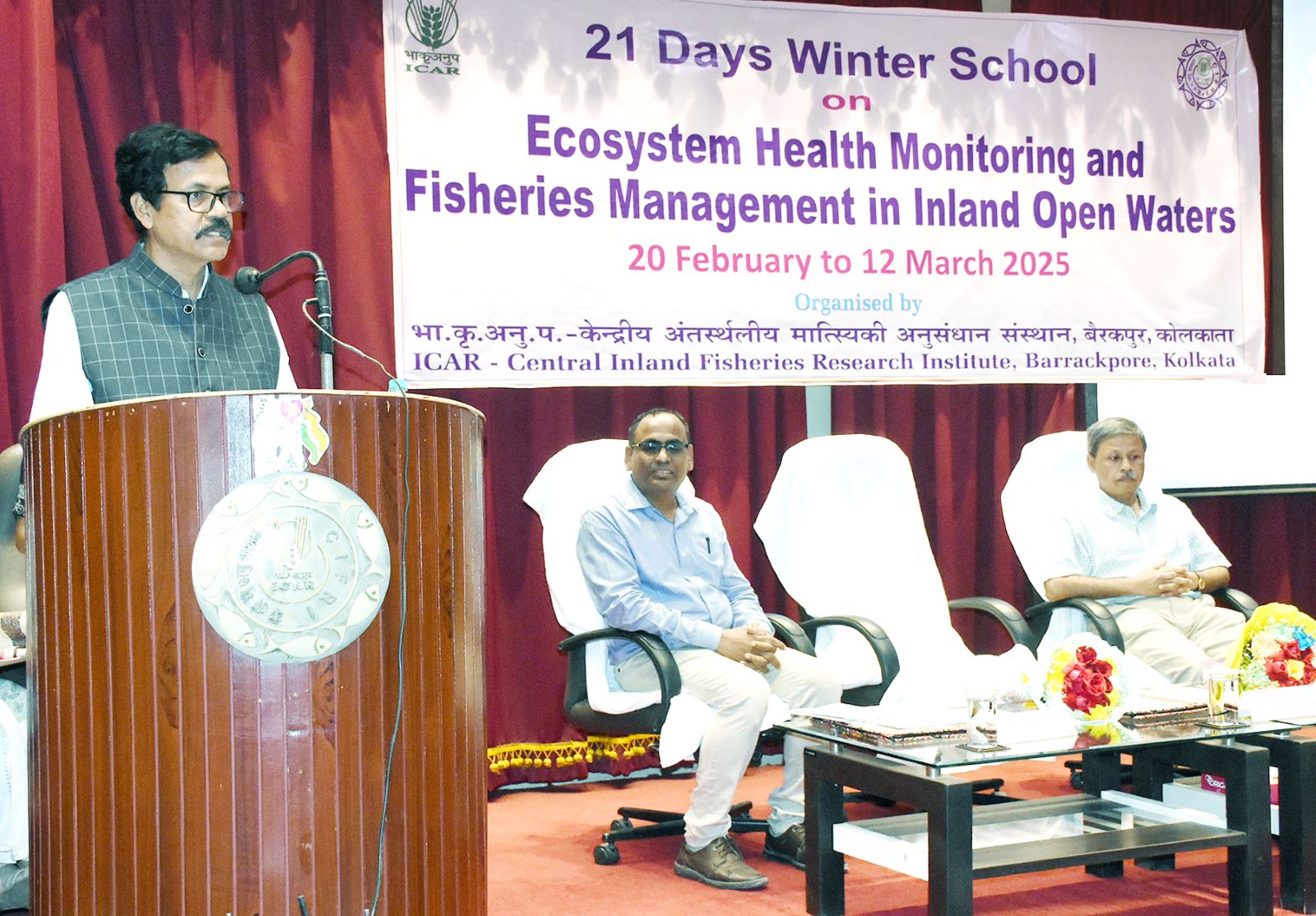
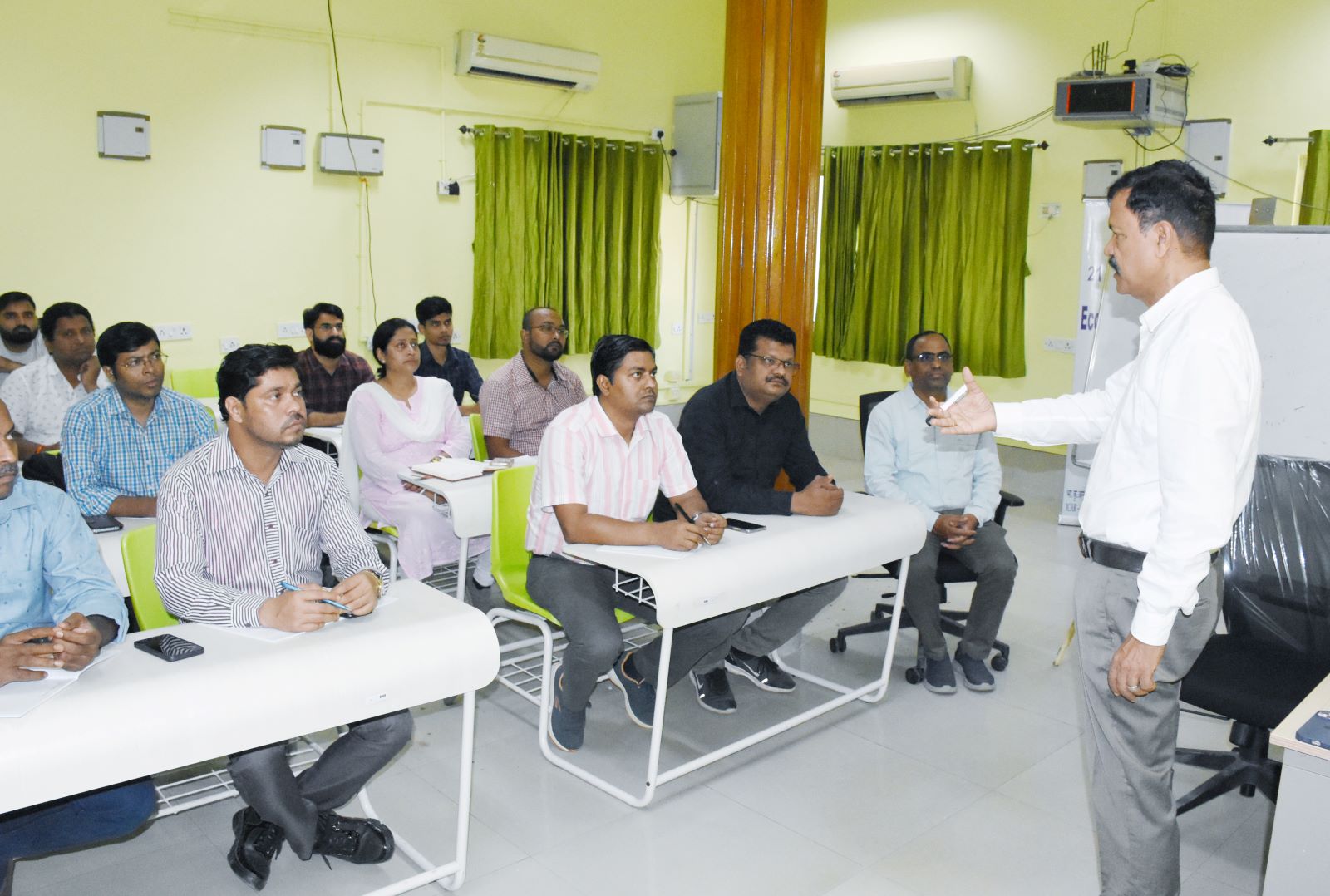
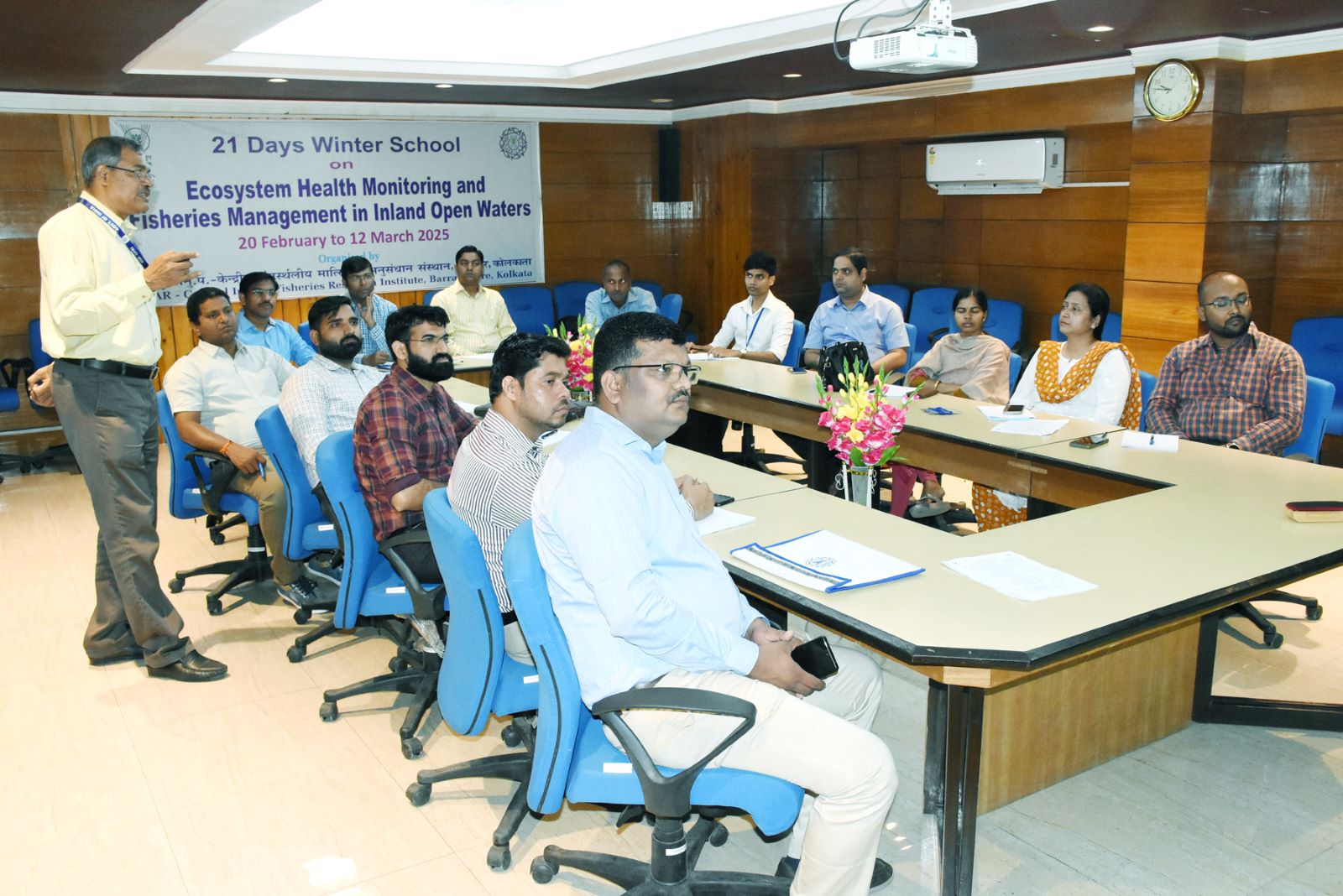
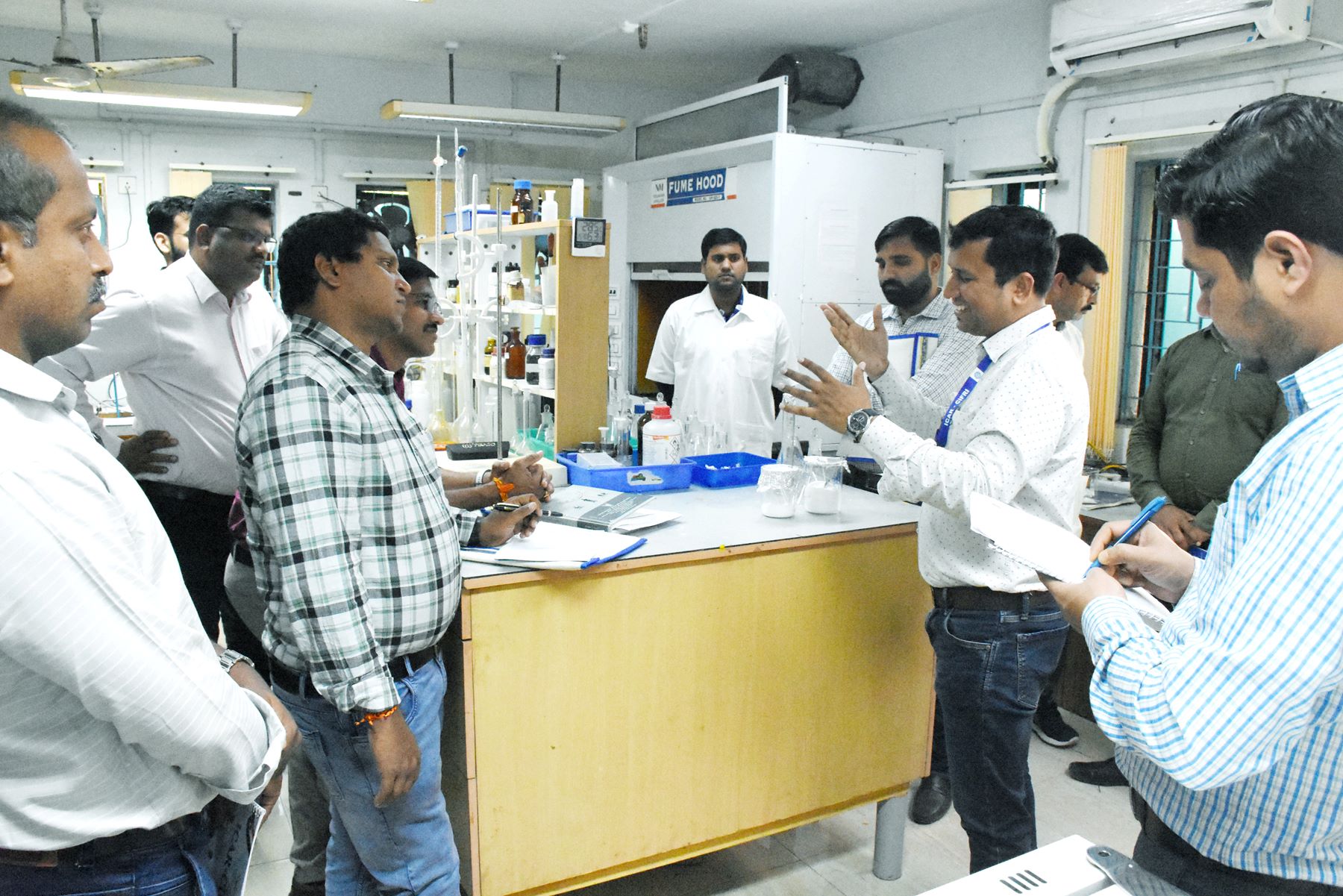
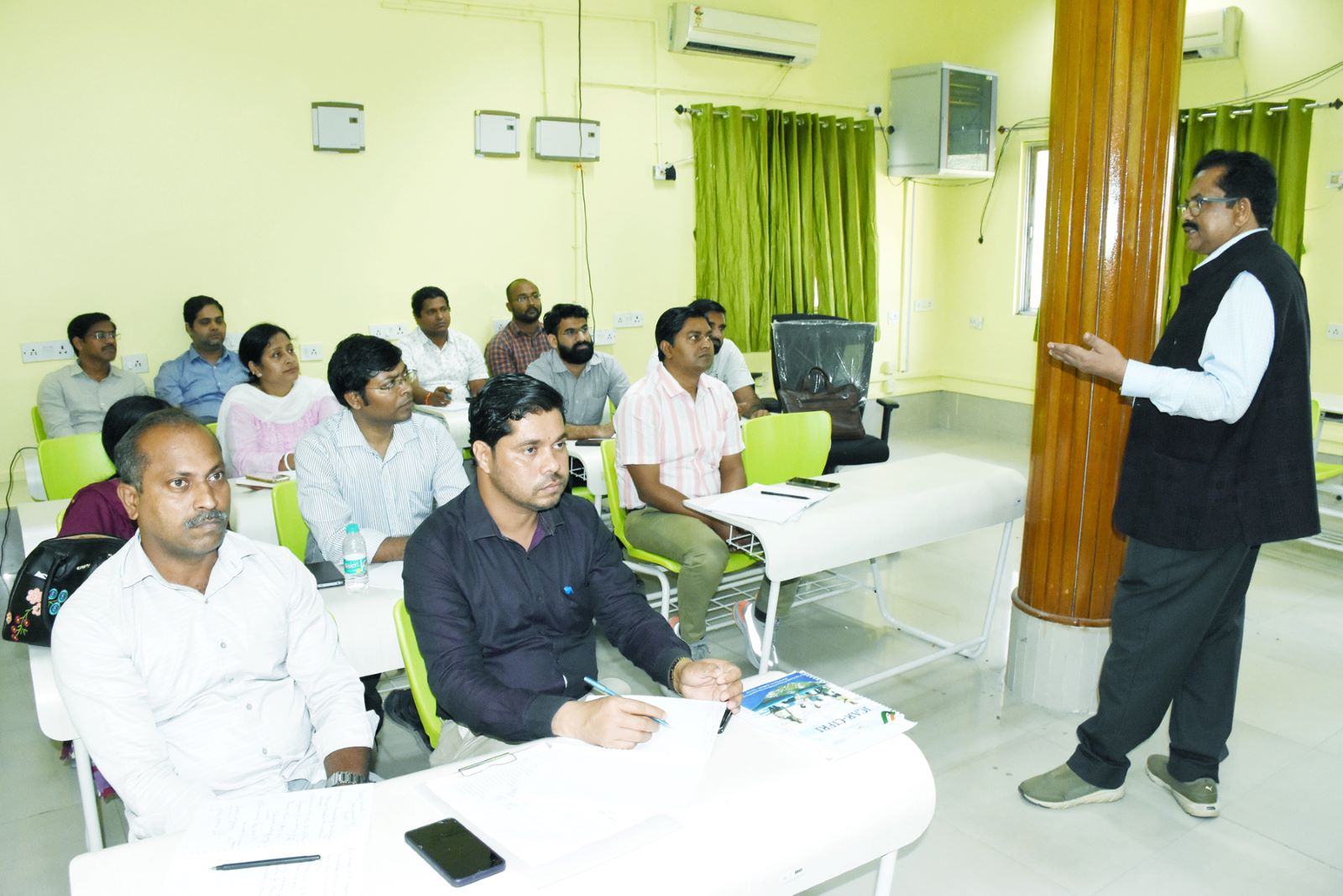
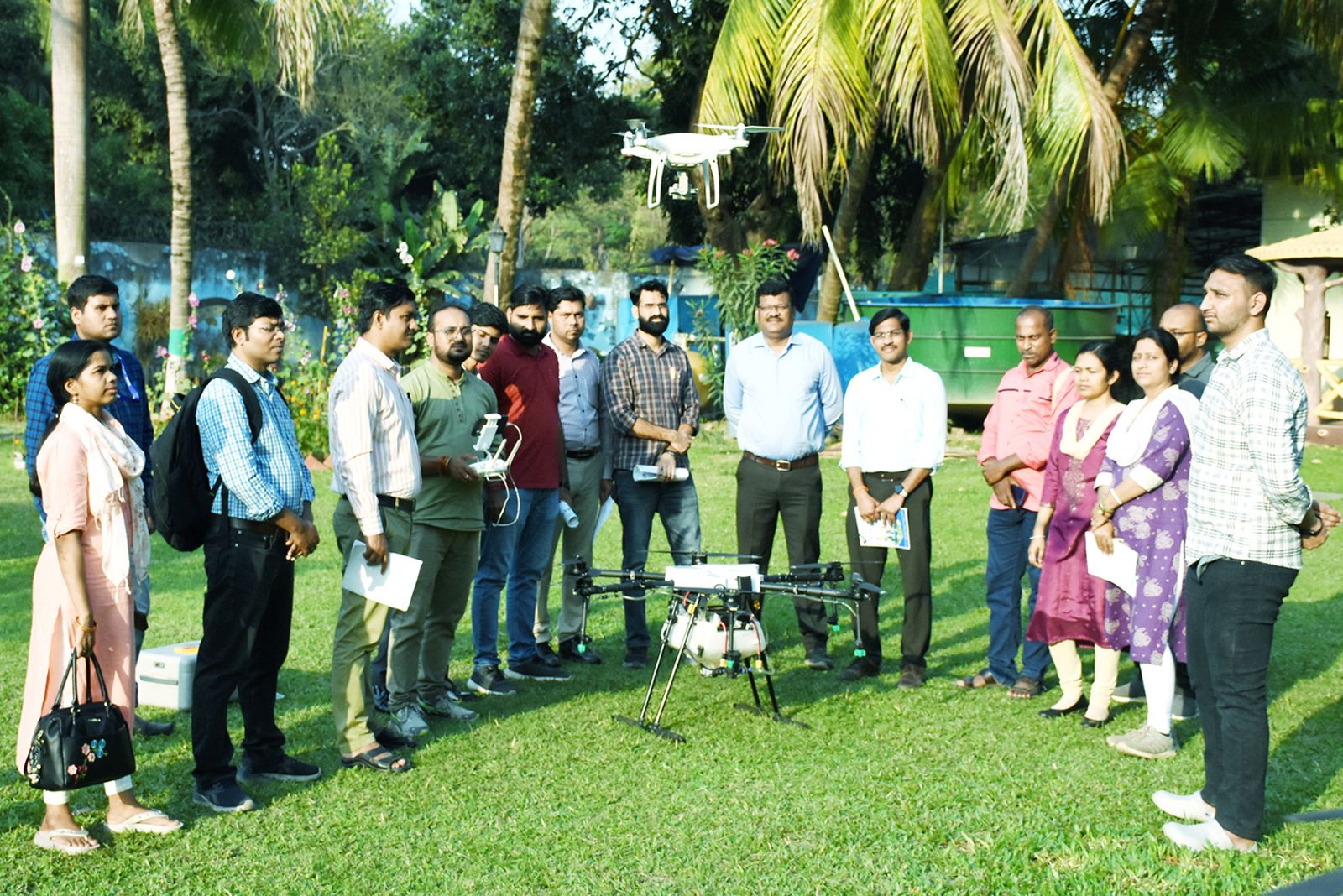
The valedictory function of the winter school was held on March 12, 2025, at ICAR-CIFRI, with Dr. B. Meena Kumari, Former Deputy Director General Fisheries ICAR, as the chief guest. The function was attended by a galaxy of dignitaries, including Dr. A.K. Singh, Former Director ICAR-DCFR, Dr. B.P. Mohanty, Former Assistant Director General (Inland Fisheries) ICAR, and Prof. (Dr.) S. Dutta, IIT Guwahati.
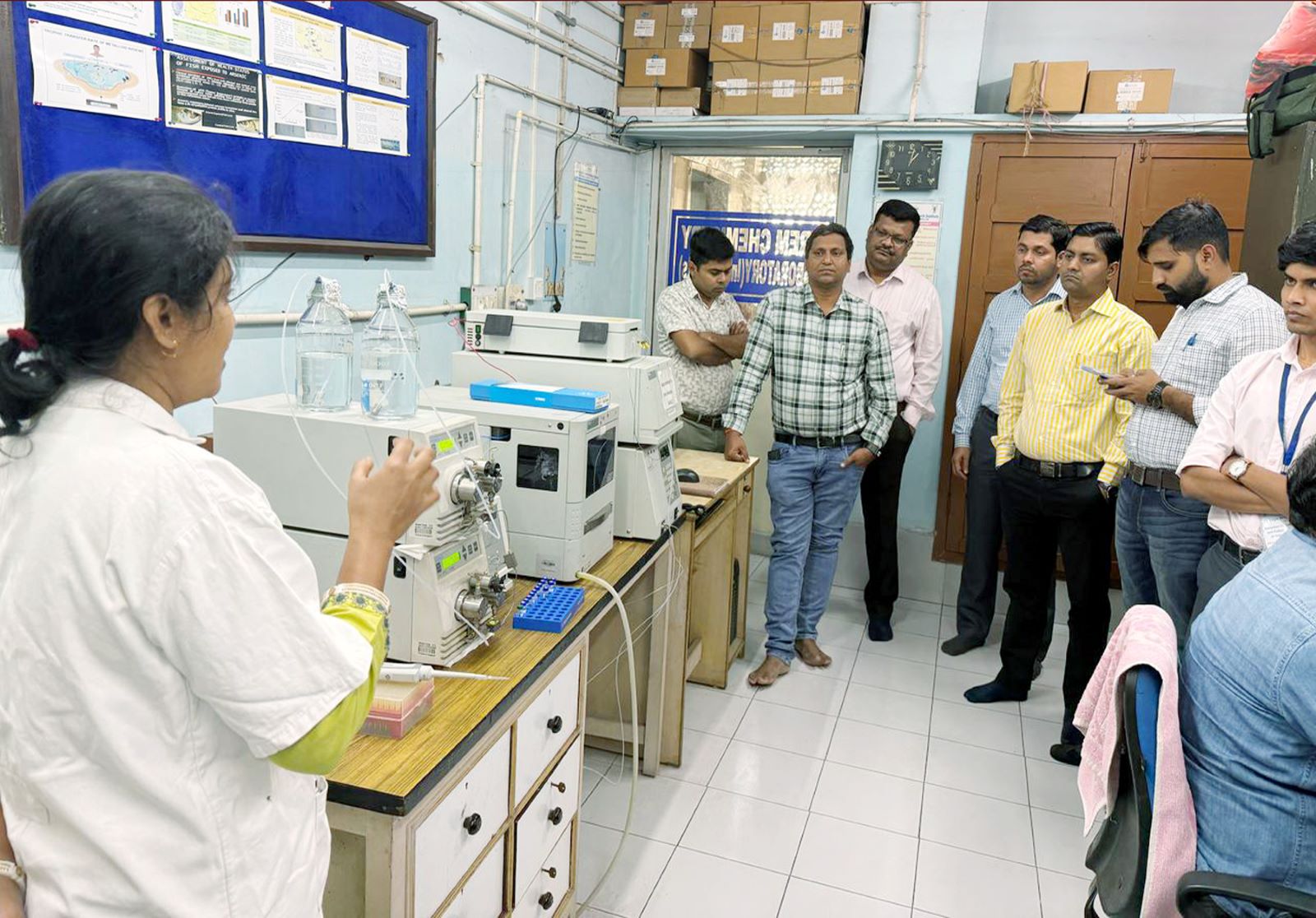
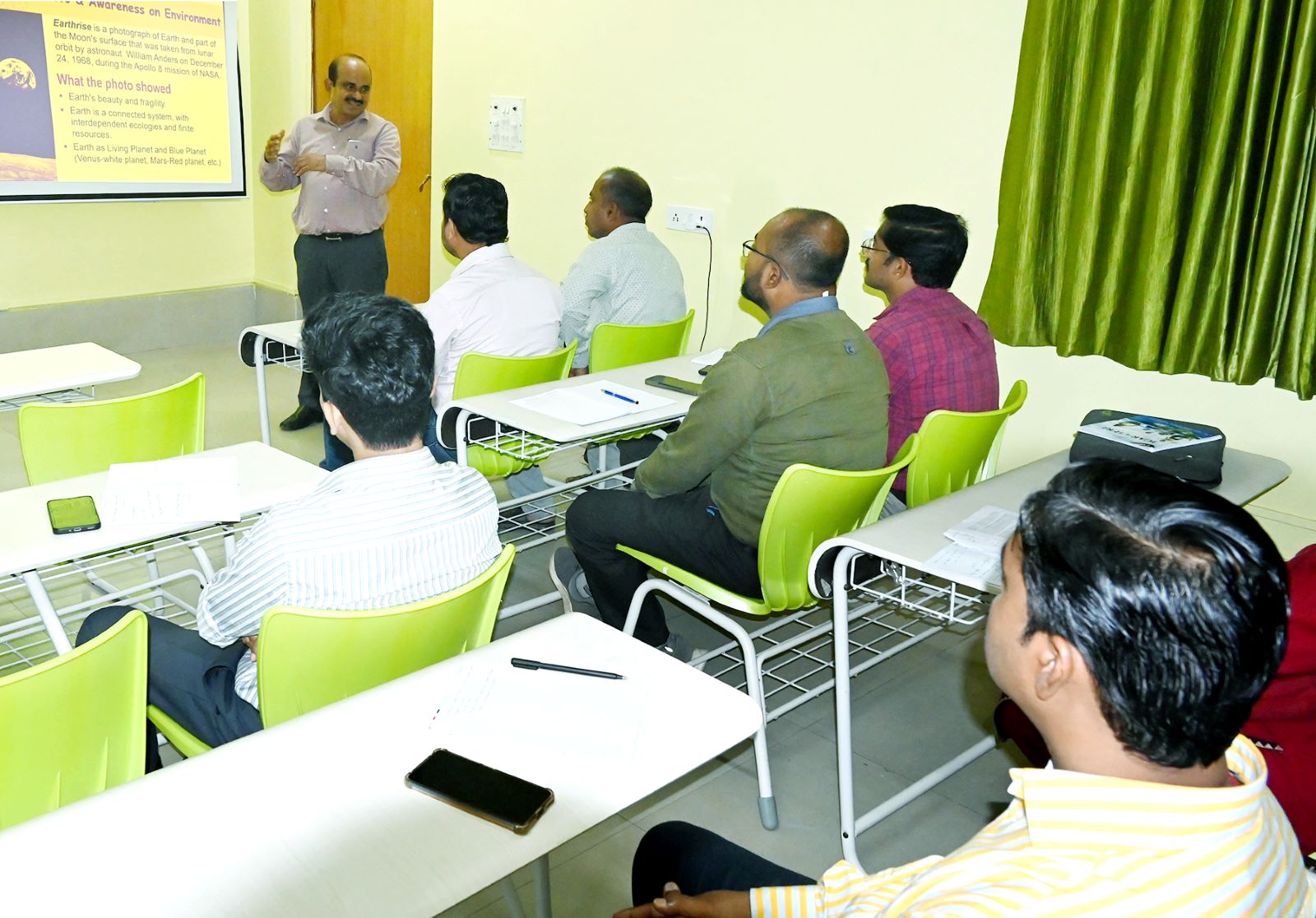
The chief guest, Dr. B. Meena Kumari, delivered a thought-provoking address, emphasizing the importance of ecosystem health monitoring for sustainable inland fisheries management. She highlighted the need for a multidisciplinary approach, involving experts from various fields, to address the complex issues related to ecosystem health monitoring and fisheries management. The other dignitaries, including Dr. A.K. Singh, Dr. B.P. Mohanty, and Prof. (Dr.) S. Dutta, also shared their valuable insights and experiences, stressing the need for effective monitoring and management of inland open water resources.
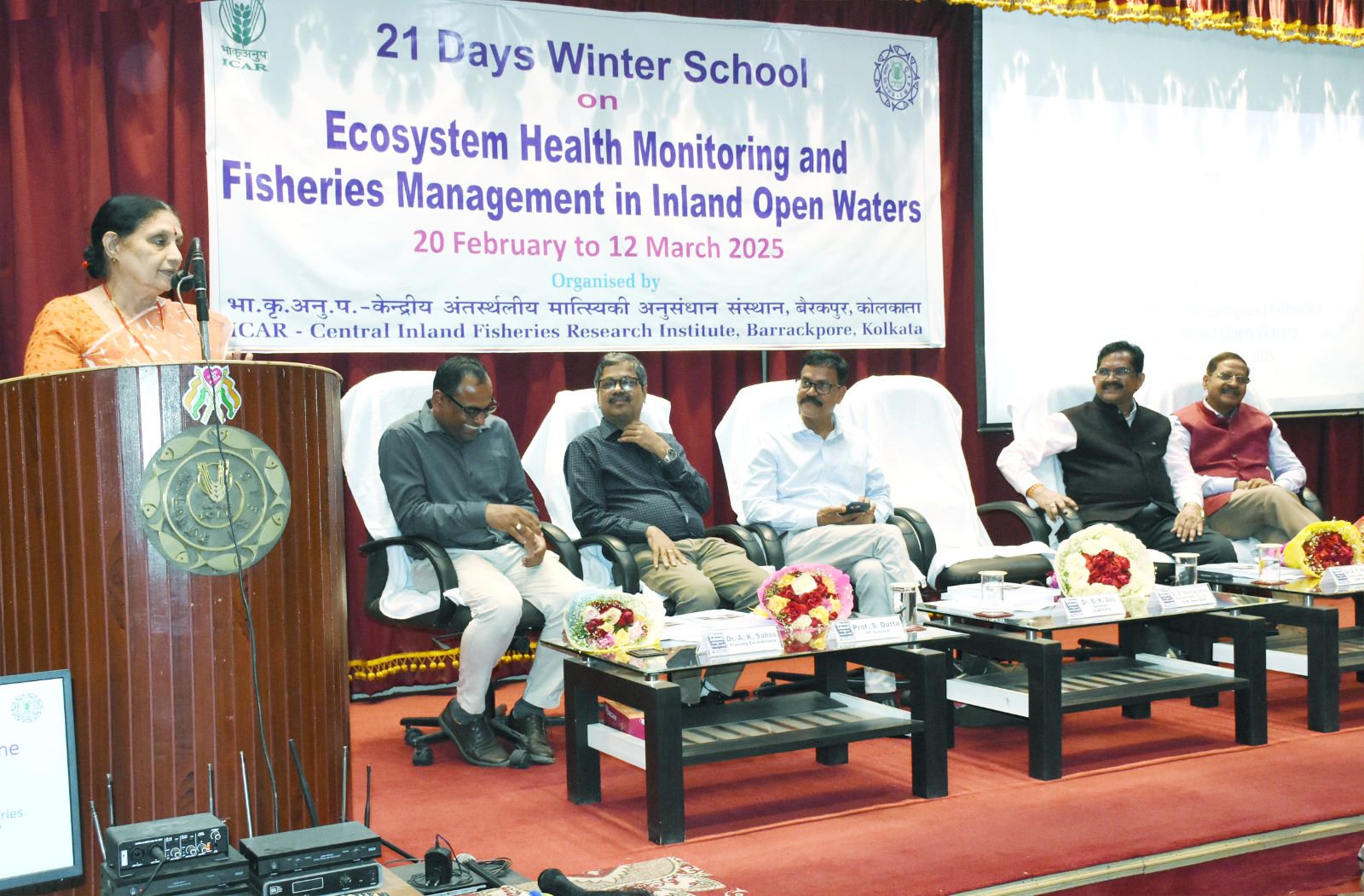
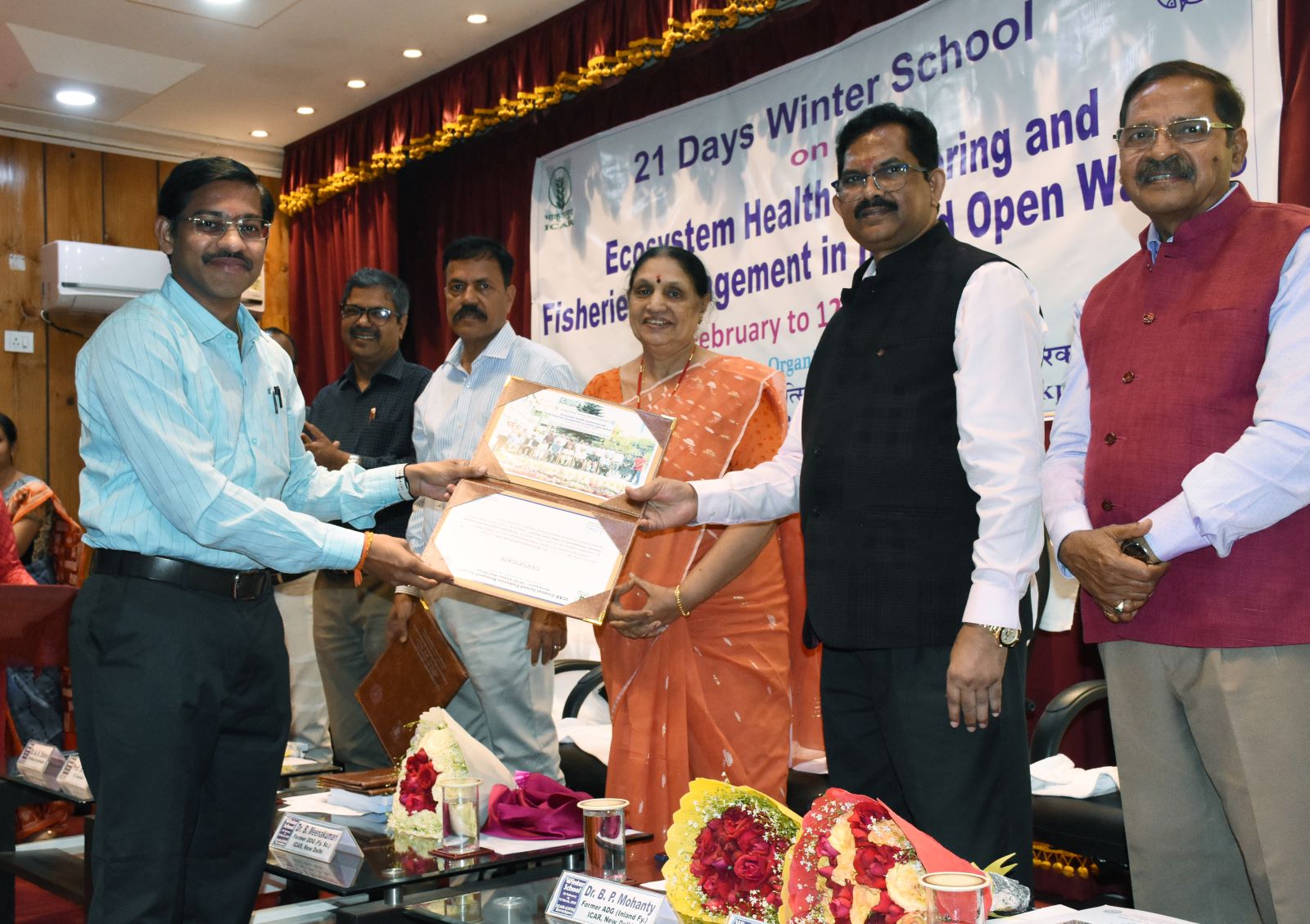
The key recommendations from the winter school are:
Emphasis on ecosystem health monitoring for sustainable inland fisheries management
Integration of traditional and modern technologies for effective monitoring and management of inland open water resources
Development of decision-support systems for sustainable fisheries management
Capacity building and training programs for stakeholders and professionals in the field of ecosystem health monitoring and fisheries management
Encouragement of interdisciplinary research and collaboration among experts from various fields to address the complex issues related to ecosystem health monitoring and fisheries management.
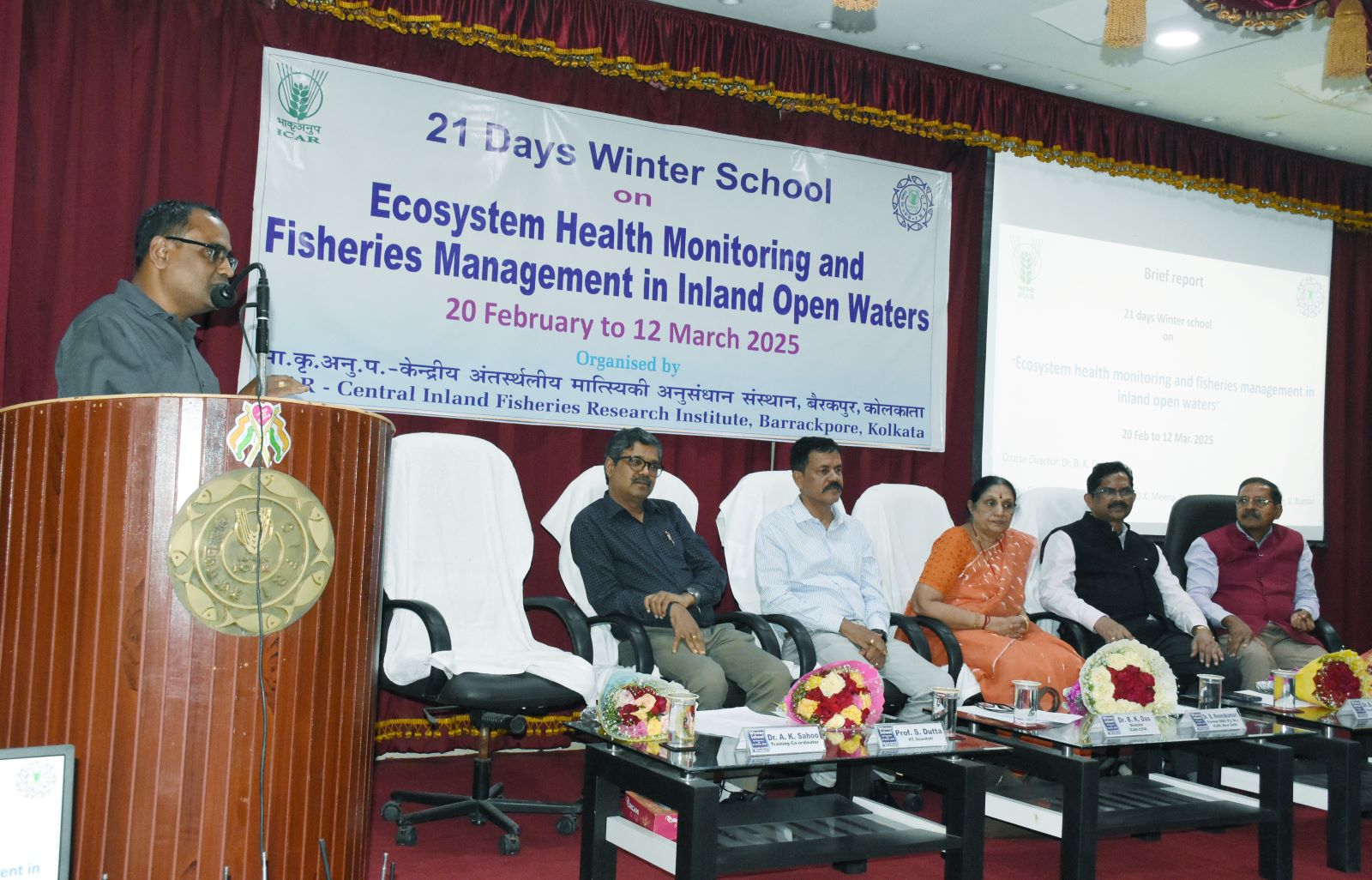 Thus, the 21-day winter school on ecosystem health monitoring and fisheries management in inland open waters was a resounding success, providing a platform for experts and participants to share knowledge, experiences, and ideas on the sustainable management of inland open water resources. The program emphasized the need for ecosystem health monitoring and the integration of traditional and modern technologies for effective monitoring and management of inland open water resources. The valedictory function was a fitting conclusion to the program, with the dignitaries and participants alike emphasizing
Thus, the 21-day winter school on ecosystem health monitoring and fisheries management in inland open waters was a resounding success, providing a platform for experts and participants to share knowledge, experiences, and ideas on the sustainable management of inland open water resources. The program emphasized the need for ecosystem health monitoring and the integration of traditional and modern technologies for effective monitoring and management of inland open water resources. The valedictory function was a fitting conclusion to the program, with the dignitaries and participants alike emphasizing










